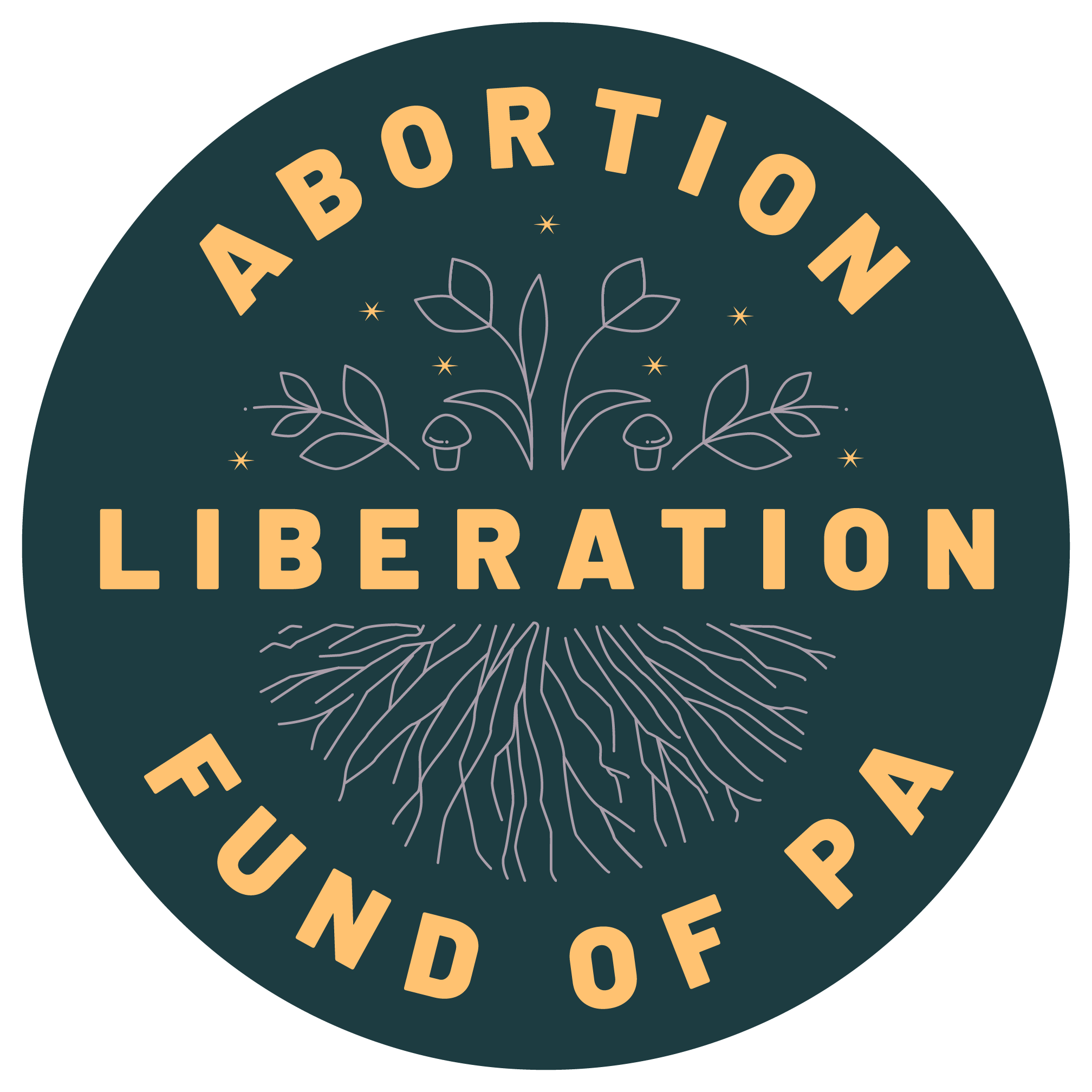History
1976
Hyde Amendment passes federally, blocking federal Medicaid funding for abortion care.
1981
First “board” meeting held.
1985
Pennsylvania Abortion Control Act (cutting Medicaid funding for abortion) becomes fully effective, sparking the formation of the “Greater Philadelphia Women’s Medical Fund” (GPWMF) — the abortion loan fund.
1986
Lynn Marks, Esq. hired as first part-time Director and works in donated office space at 1218 Chestnut Street.
1987
Lynn Green hired as second part-time Director. The Fund begins PR campaign to increase its public visibility.
1988
300 women helped by loans. The Fund partners with more providers willing to discount their fee for abortions sought by poor women.
1989
GPWMF receives non-profit status by becoming a unit of “Resources for Human Development”, a registered charitable organization. Shawn Towey hired as part-time third Director. She shares office space with NARAL-PA at 1218 Chestnut Street.
1990
Twice-weekly evening loan counseling by GPWMF volunteers taking place face to face at Elizabeth Blackwell.
1991
The Board authorizes Shawn Towey to work full-time and to pay four college students per semester to work as loan counselors. GPWMF becomes a completely independent organization. Diane Kiddy, one of the Fund’s founders, honored at the first fundraising event held in the Mayor’s Reception Room.
1992
GPWMF moves into its own space at 1218 Chestnut Street. Loan counselors begin to see clients during the day in their offices. They also begin to offer limited phone counseling.
1993
Fund is receiving so many loan requests it can only offer help to 1 in 4 callers.
1994
Pennsylvania’s mandatory waiting period and parent consent for minors (Pennsylvania vs. Casey) goes into full effect. The fund switches from evening face-to-face loan counseling to a daytime telephone operation.
1995
689 women and girls use loans offered by the Fund. GPWMF joins Blackwell and CHOICE in a lawsuit asking the United States Court of Appeals, Third Circuit to declare invalid parts of the Pennsylvania Abortion Control Act.
1996
The Board authorizes Shawn to hire a part-time administrative assistant. Loan counselors screen calls from 2100 prospective clients.
1997
779 women and girls use loans offered by the Fund.
1998
The Board authorizes Shawn to hire a part-time coordinator of client services to supervise student loan counselors and improve the training program.
1999
GPWMF has over 3,000 people on its mailing list and 1,000 yearly donors. 1,300 women and teenagers were offered assistance.
2000
Fundraising successful enough to be able to offer loans to 1 out of every 2 callers.
2001
GPWMF establishes the Rosie Jimenez Award (named after the first woman to die as a result of the Hyde Amendment) to honor individuals or organizations working for reproductive freedom. After eleven years, Executive Director Shawn Towey resigns. Oretha Wofford becomes the 4th Executive Director.
2002
GPWMF launches the Community Leadership Development Project to cultivate leadership in former clients, and establishes the Shawn Towey Internship in Reproductive Rights. Poor women and girls seeking funds for an abortion use a record number of loans—1107. Lacking adequate funds for repayment, the Fund ceases giving more loans while it regroups.
2003
Former Board Chair Kimberly C. Oxholm steps in as Interim Executive Director as the Fund works to regain financial stability. Susan Schewel hired as the fifth Executive Director. Despite the setbacks, 600 women helped by loans.
2004
“Greater Philadelphia” dropped from the organization’s name, which is now re-named “Women’s Medical Fund” (WMF) — the abortion access fund.
2005
The Board authorizes Susan to hire a part-time administrative assistant. WMF celebrates its 20th anniversary. Over the course of 20 years, the Fund has helped over 10,000 local women and girls afford abortions that were legal, but financial out of reach.
2008
WMF hires Judy Walker as a part-time Development Coordinator.
2014
WMF hires Josephine Kabambi as first Program Coordinator to manage the help line. Judy Walker becomes full-time Development Manager.
2015
WMF hires Christine Moore to support fiscal operations and development. This same year, Tabitha Skervin joins the team as WMF’s first Community Mobilization Coordinator.
2016
Marah Lange hired to oversee the Help Line. Board adopts a 3-year (FY17-19) strategic plan, expanding mission to center abortion access in racial and economic justice. The “ATeam”, later named the “Philadelphia Reproductive Freedom Collective”, is formed – comprised of 8-20 WMF supporters, primarily in their 20s.
2017
Susan Schewel steps down and WMF hires Elicia Gonzales as the 6th Executive Director. Judy Walker becomes Director of Development & Finance. WMF raises more than $1,000,000 in revenue. Program Coordinator position is renamed Abortion Funding Coordinator. 2,717 individuals use funding.
2019
Seneca Joyner joins team as Manager of Community Organizing. Help Line model transitions from utilizing university students to hiring two permanent, part-time staffers: Kai Kornegay and Cat Wulff. WMF aims to give out half a million in funding for folks needing financial support to cover the cost of their abortion. In fiscal year 2019, 3,282 people receive funding for abortion care.
2020
Women’s Medical Fund transitions out Resources for Human Development as our fiscal sponsor and become our own 501(c) 3! Sydney Camisa Deas comes on board as Manager of Development, after longtime staff Judy Walker resigns. All operations are moved to remote work due to COVID19.
